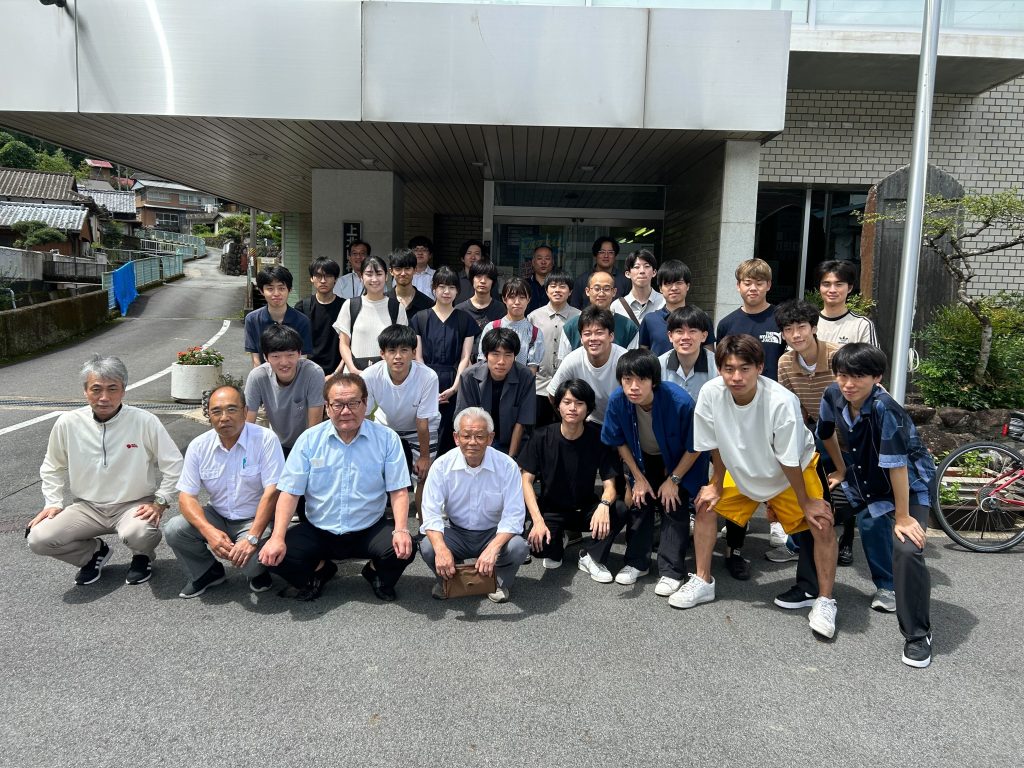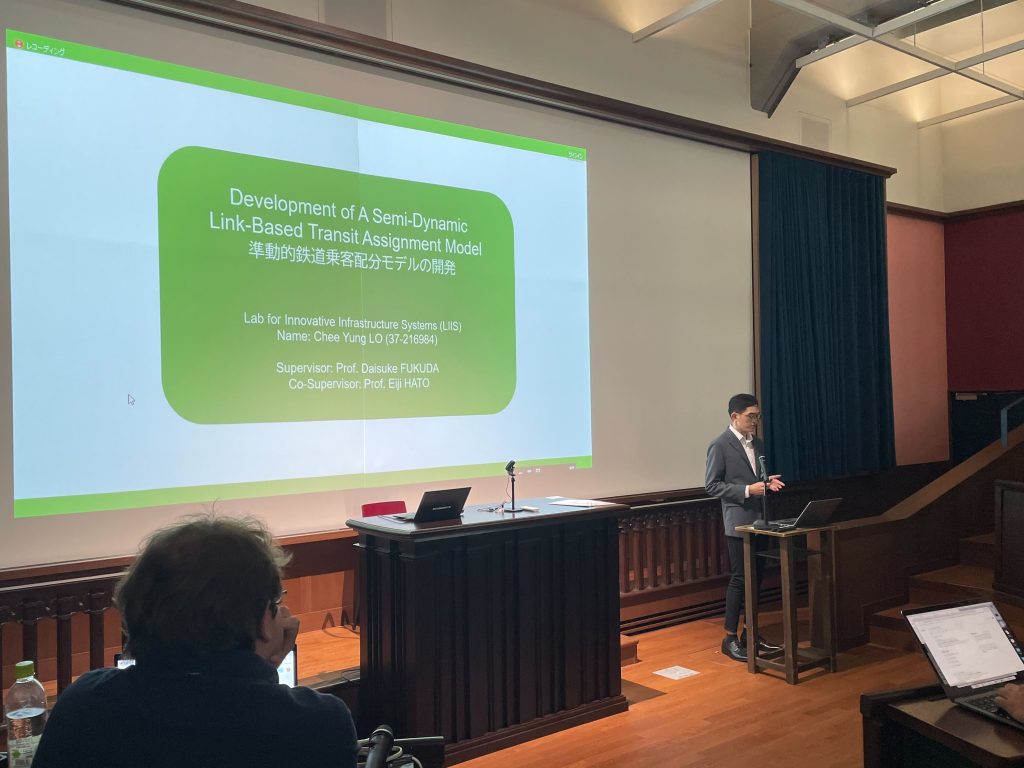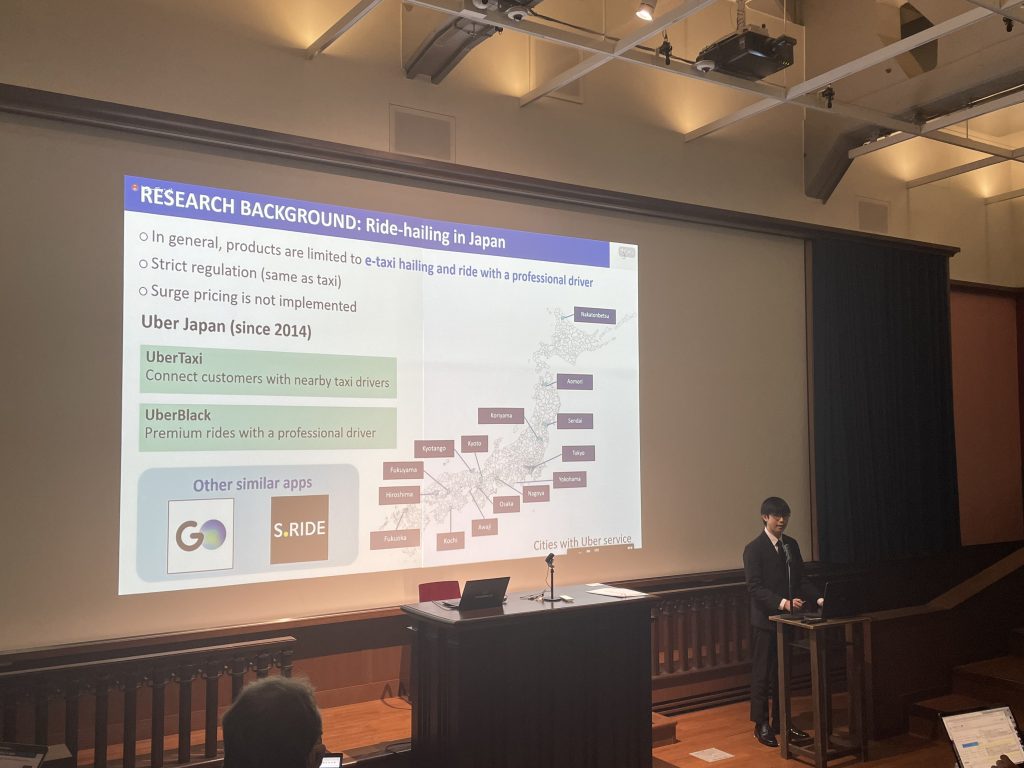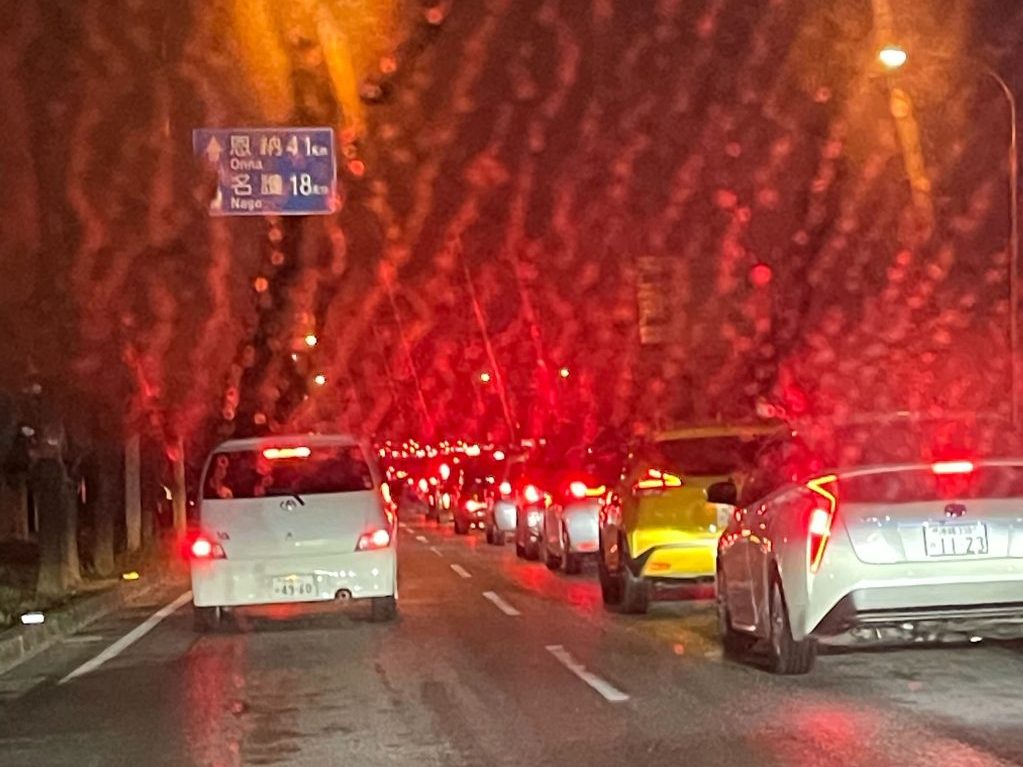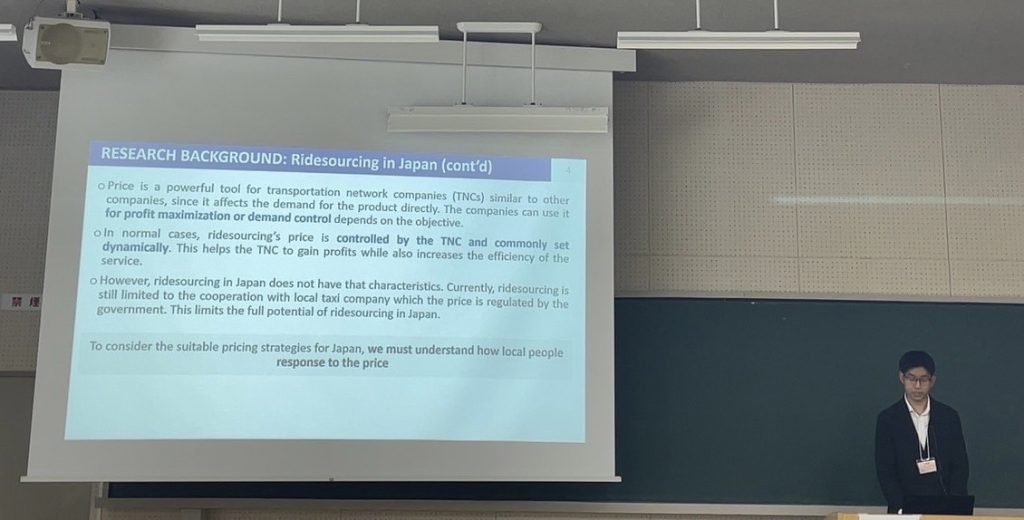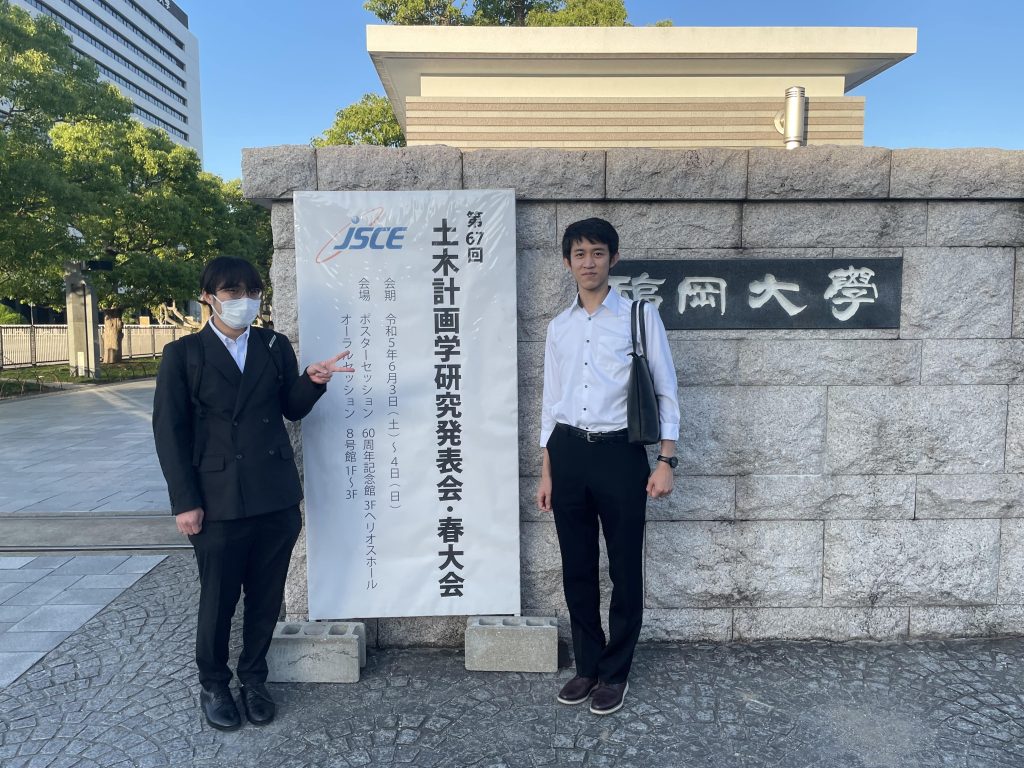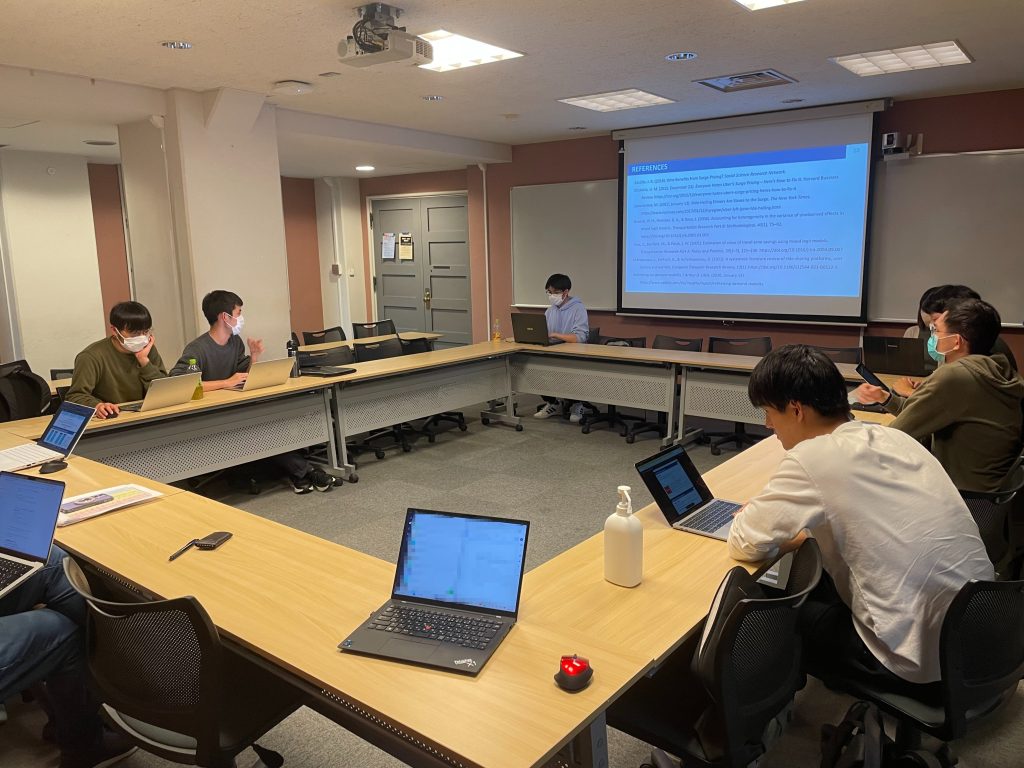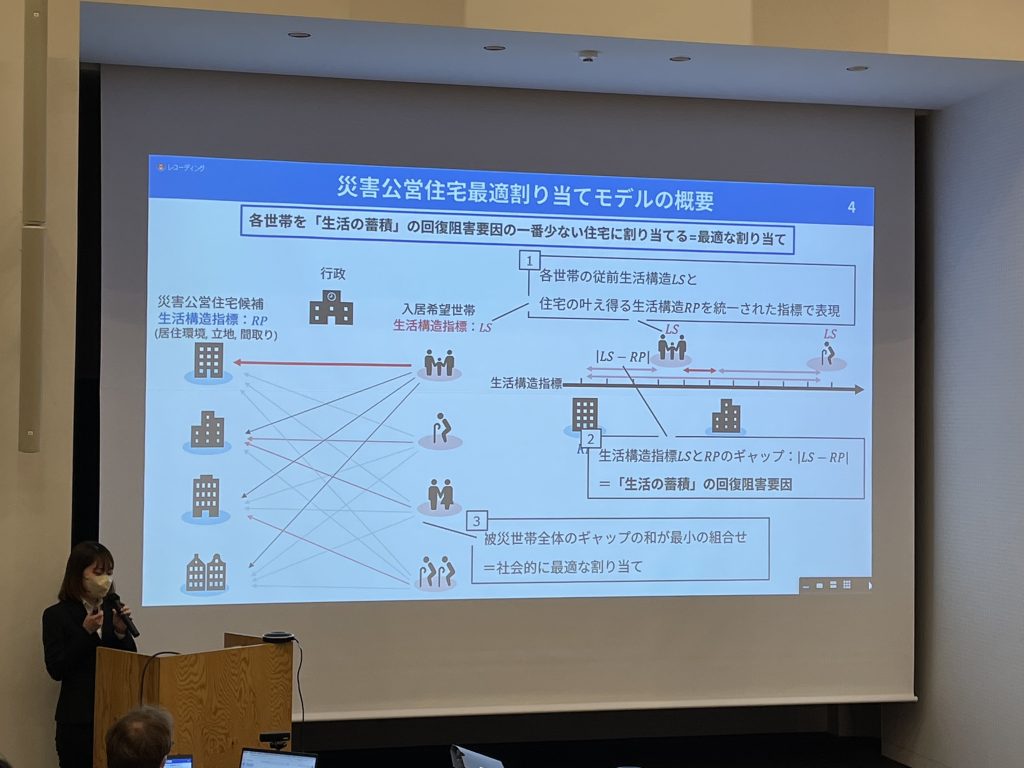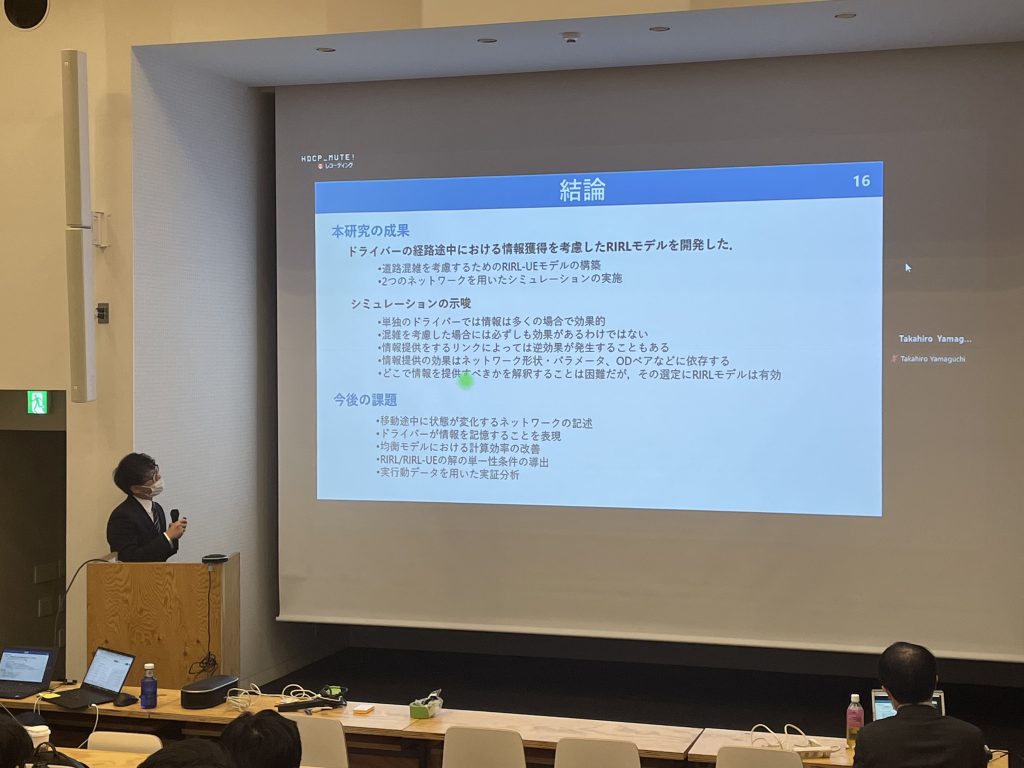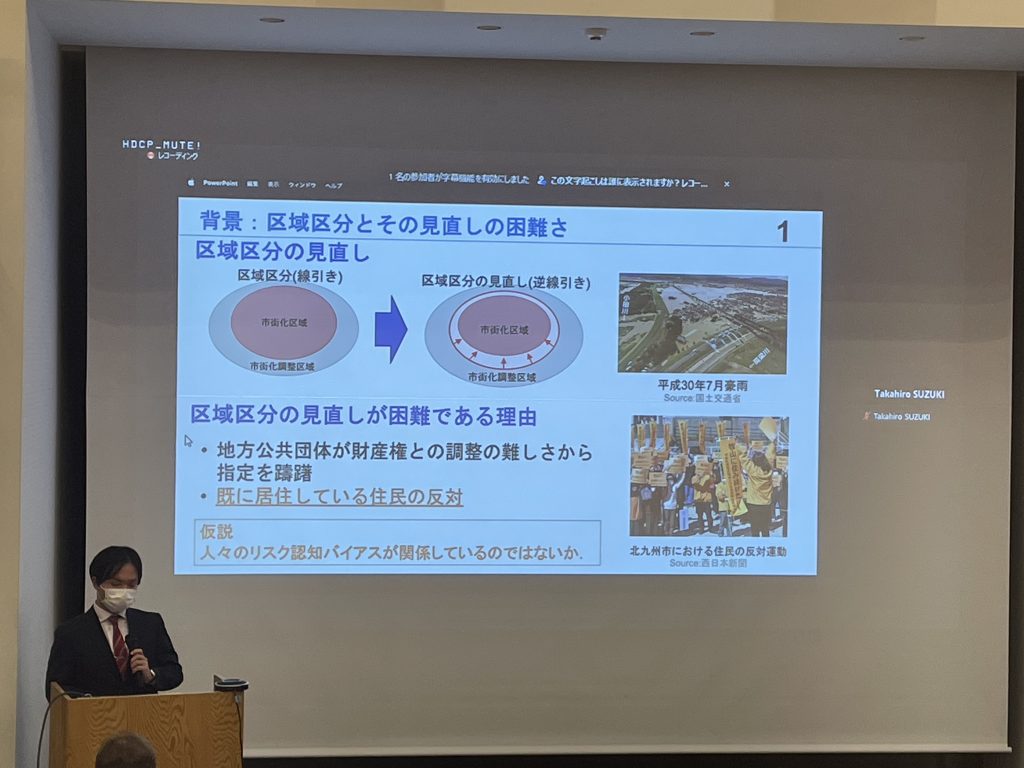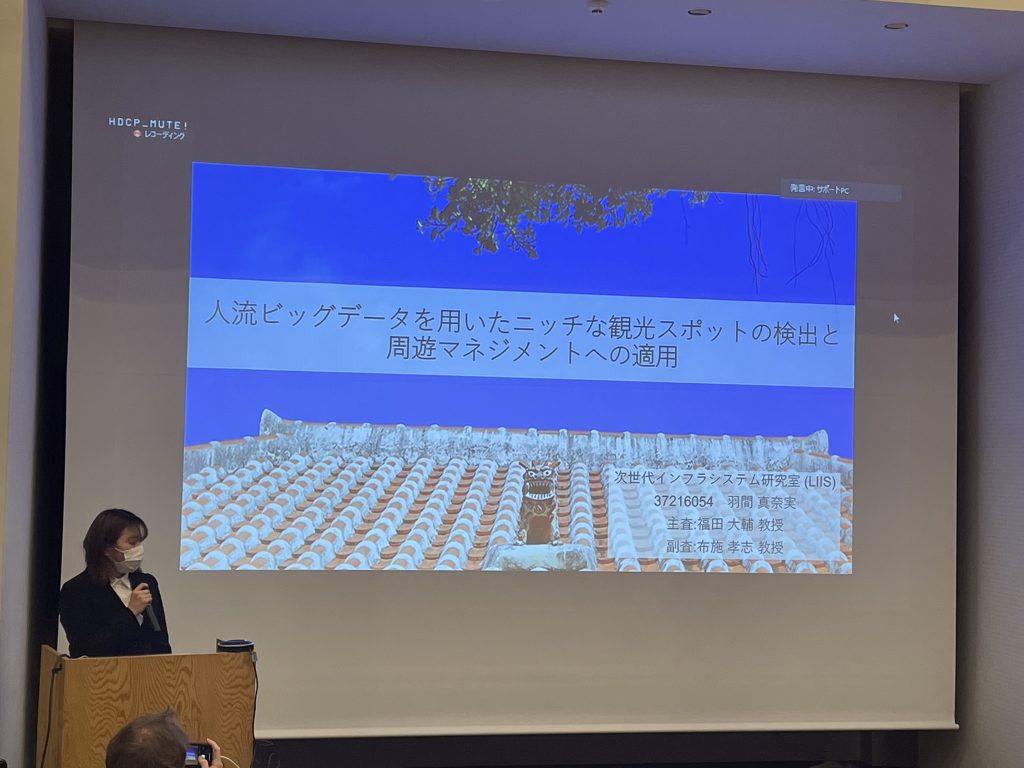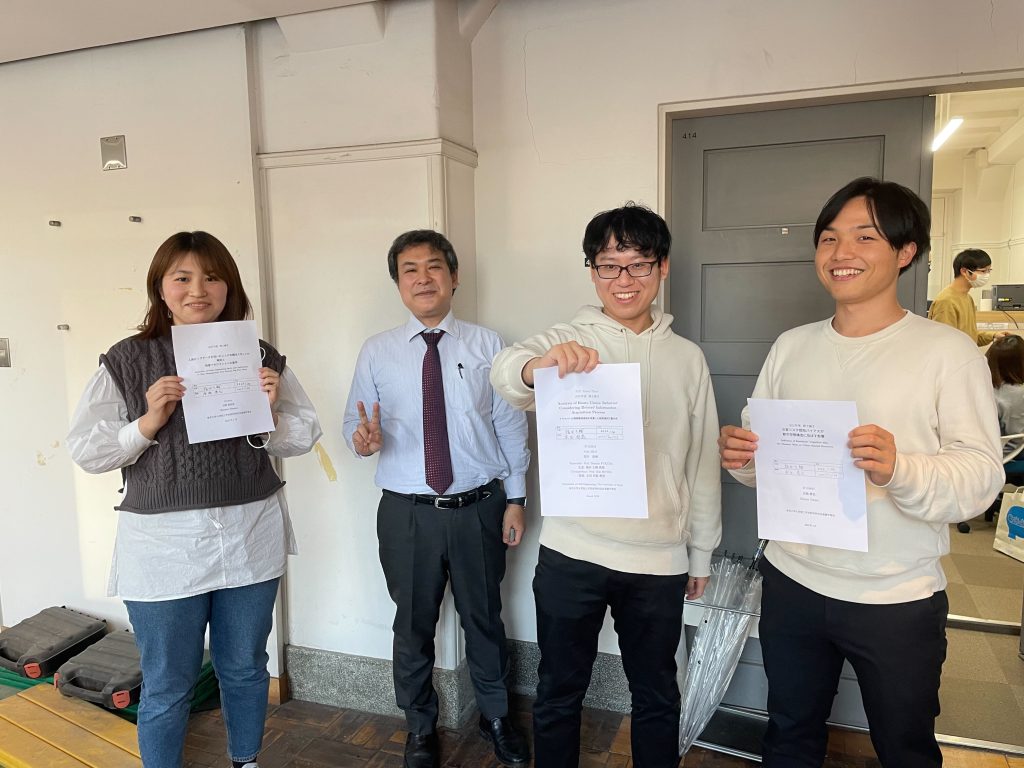Hearing Survey in the Kamikitayama Village
[28-31 August 2023]
In Kamikitayama Village, lcoated within the Yoshino District of Nara Prefecture, we conducted a joint hearning survey with the members of Waseda University’s Sasaki Kunaki Laboratory. Thanks to the introduction by Professor Fukuda and the arrangement made by Professor Sasaki from Waseda University, Hasegawa and Ebashi from our lab joined as surveyors.
We were assigned to different districts and visited each household in the village. We asked questions about their daily lives and their thoughts on the future of the village. 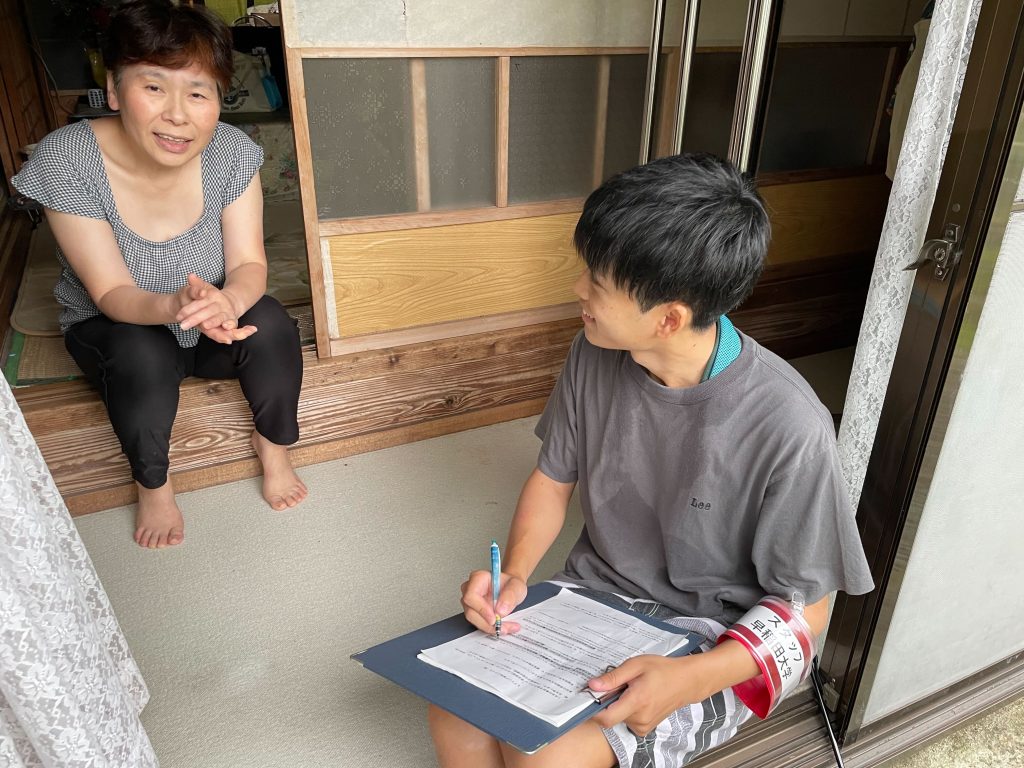 The villagers welcomed us warmly, and we were able to hear honest and frothright stories from them. On the other hand, we also realized the serious fact of depopulation and aging in the village through concrete conversations. Before that, I had a concern about the decline of rural areas and entered this field and research lab with that awareness, but this survey has further strengthened that consciousness for me.
The villagers welcomed us warmly, and we were able to hear honest and frothright stories from them. On the other hand, we also realized the serious fact of depopulation and aging in the village through concrete conversations. Before that, I had a concern about the decline of rural areas and entered this field and research lab with that awareness, but this survey has further strengthened that consciousness for me.
Additionally, we spent four days living and dining together, deepening our friendship with the members of the Sasaki Laboratory. Following last summer’s joint seminar camp in Nagaoka, this year’s activities included BBQ, watermelon smashing, and fireworks. It was a very enjoyable time, not limited to the survey. I would like to express my gratitude to the members of the Sasaki Laboratory for their meticulous preparations.
We plan to compile the findings of this survey as a feedback material. It woll serve as the material for an upcoming workshop scheduled for this December, where the villagers will take the lead in considering the future of their community. Once again, I would like to express my appreciation to everyone at the Nara Prefecture Office, the residents of Kamikitayama Village, and the members at Waseda University’s Sasaki Laboratory for their invaluable support throughout this survey.
Master’s thesis final defense
[28 July 2023]
On July 28 (Friday), a face-to-face master’s thesis final defense was held at the Hongo Campus for students expected to graduate in September. Mr. Chee Yung and Mr. Krittanai from our lab presented their theses, and both of them had passed the final defense.
The presentation topics were as follows:
- Chee Yung: Development of a Semi-Dynamic Link-Based Transit Assignment Model
- Krittanai: How Do Prices Affect the Utilization of Ride-hailing Services: Evidence from Uber Japan Experiments
Following their presentations, valuable comments and questions were received from professors, including Professors Hato, Kikuchi, Sawada, and Morimoto. We would like to take this opportunity to express our gratitude to them.
[Hasegawa]
Field Trip in Mainland Okinawa
Hi, I am Mega, a B4 student from our lab. I visited Okinawa last weekend.
In order to experience the tourist traffic congestion that I am going to address in my bachelor thesis, I participated in the Ocean Expo Fireworks Festival, which is said to be the busiest event in the Motobu area. I am deeply grateful to Mr. Uechi, a D1 student from Ryukyu University, who has a connection with the Fukuda Laboratory. Thank you for your assistance and for getting us caught up in the traffic congestion.
Moreover, we had a social gathering, and I had the opportunity to hear Prof. Kamiya’s passionate talk. I will use this experience as a basis for my research! Thank you everyone in the Okinawa!
JSCE Spring Conference @ Fukuoka University
[3-4 June, 2023]
Mr. Krittnai presented his research at the Spring Conference of the JSCE Committee of Infrastructure Planning and Management, which was held at Fukuoka University on 3rd (Saturday) and 4th (Sunday) June. The title of his presentation was as follows:
“How Does Price Affect the Utilization of Ridesourcing Services: Evidence from Uber Japan’s Experiments (Sriwongphanawes Krittanai and Daisuke Fukuda)”
We received valuable comments regarding Mr. Krittanai’s presentation from many professors and participants. Thus, we would like to take this opportunity to express our gratitude.
Moreover, we also participated in the conference as audiences. Over these two days, presentations from various fields were held. We had the chance to know some interesting research conducted by students from other universities with whom we have been involved in previous research activities, especially during the poster session! This experience provided us with great inspiration for our future master’s research. We are grateful to participate in this conference!
| Conferences Lab Life by Students
Welcome, Dr. Ali-gul Qureshi and Dr. Jose Escribano-Macias!
On May 19th, our lab had the pleasure of hosting Dr. Ali-gul Qureshi and Dr. Jose Escribano-Macias. Dr. Ali-gul Qureshi is an associate professor at Kyoto University with a research focus on urban logistics studies, while Dr. Jose Escribano-Macias is a research associate at Imperial College London, specializing in autonomous vehicles, urban logistics, and resilience studies.
During their visit, we engaged in fruitful discussions on various topics, including urban transportation network modeling, e-hailing services, urban resilience, and disaster reconstruction. The exchange of viewpoints provided valuable insights and opened up possibilities for future cooperation opportunities.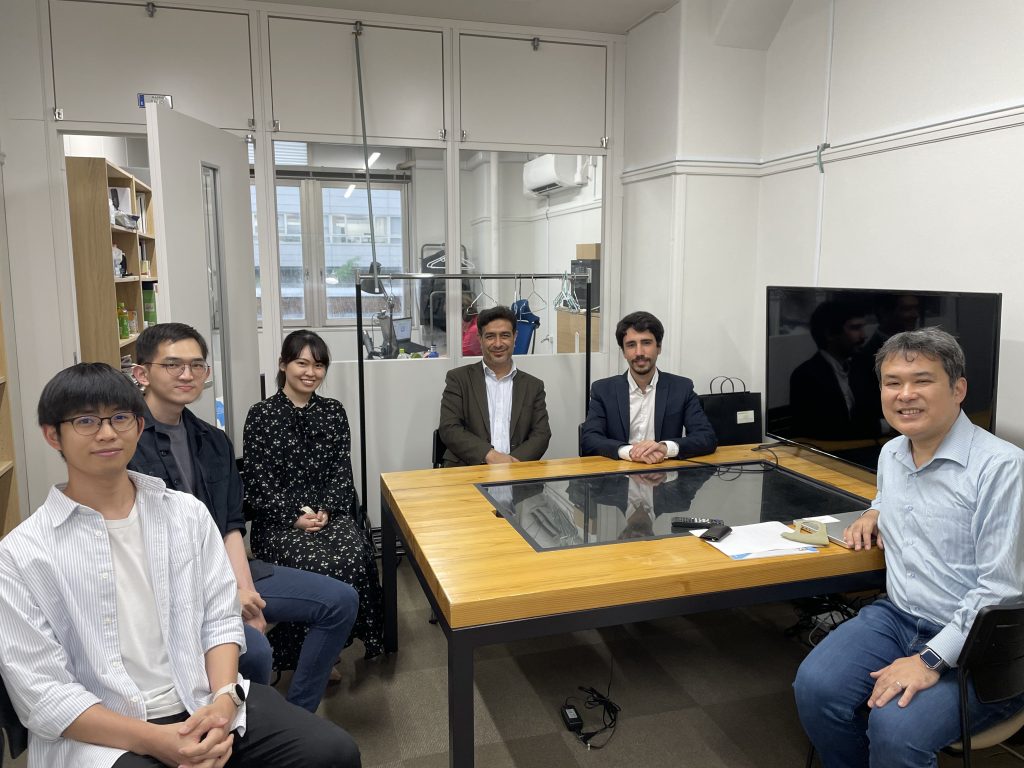 We extend our gratitude to Dr. Ali-gul Qureshi and Dr. Jose Escribano-Macias for their visit and look forward to exploring some cooperation opportunities with them in the near future.
We extend our gratitude to Dr. Ali-gul Qureshi and Dr. Jose Escribano-Macias for their visit and look forward to exploring some cooperation opportunities with them in the near future.
[Chee Yung]
We’ve started the lab activities for the 2023 academic year!
Recently, we held the first seminar of the 2023 academic year in our lab! We’re pleased to welcome three new B4 students, Mr. Uemachi, Mr. Kawasaki, and Mr. Mega, to our laboratory. After three M2 students graduated last year, we were worried about the decrease in the number of lab members. However, we will continue to operate with nine student members for now.
As in the previous year, we will have seminars once a week. In the first semester, we will have a basic seminar and a research progress seminar, each for one hour. The basic seminar will focus on game theory. Last year’s basic seminar covered three topics, it was difficult to thoroughly understand each one as some of the details were skipped. Thus, we plan to focus on just one topic this year to ensure a better understanding of the material.
This year, I (Hasegawa) will primarily provide regular updates on laboratory life, and occasionally, some new members will also contribute. We appreciate your continued support in this academic year.
Bachelor’s thesis final defense
[7-8 Febraury 2023]
On 7th (Tue.) and 8th (Wed.) Febraury, the face-to-face final defense of bachelor’s thesis was held at Hongo campus. Ms. Nakamura, a B4 student from our lab, made a presentation and passed the final defense.
The title of her presentation is as follows.
- A Model for Optimal Allocation Plan of Disaster Prevention Restoration Public Housing Considering the Built-Lifestyle
We would like to take this opportunity to thank all the professors from various fields for their comments and questions.
Submission of the bachelor’s thesis
Following the three master’s students last week, Ms. Nakamura (B4 student) submitted her bachelor’s thesis today! This was her first time to conduct research and write a thesis, and she must have had a hard time getting used to it, but I think she did her best throughout the process. The final defense for the bachelor’s thesis will be held next week, so please take a short break and do your best to present your research results over the last year!
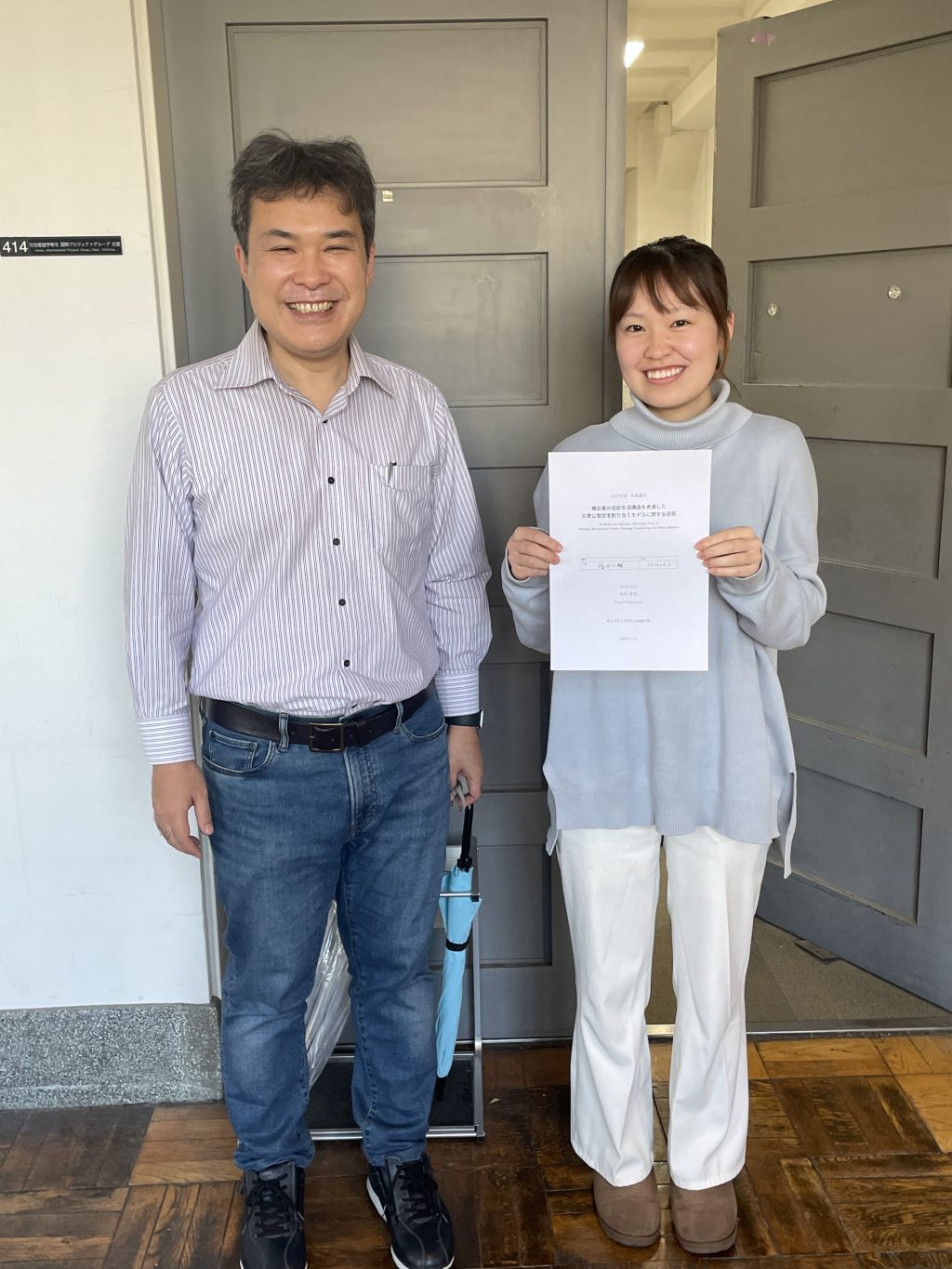 [Hasegawa]
[Hasegawa]
Master’s thesis final defense
[30-31 January, 2023]
On 30th (Mon.) and 31st (Tue.) January, the face-to-face final defense of master’s thesis was held at Hongo campus. Mr. Arai, Mr. Tabata, and Ms. Hazama (M2 students) presented their theses and all of them had passed the final defense. Moreover, Mr. Arai had received the Furuichi Award.
The titles of each research topic are as follows.
- Mr. Arai: Analysis of Route Choice Behavior Considering Drivers’ Information Acquisition Process
- Mr. Tabata: Influence of Residents’ Cognitive Bias for Disaster Risk on Urban Spatial Structure
- Ms. Hazama: Detection of Niche Sightseeing Spots from Human Flow Big Data and Application to Excursion Management
Three master’s students have submitted their theses!
Today, three M2 students submitted their master’s theses! They had been struggling to get better results until the last minute, but they all made it on time. Congratulations to them!
Although their theses are now completed, they still have to prepare slides and practice their final presentations, let’s wish them all the best in the final thesis presentation!
